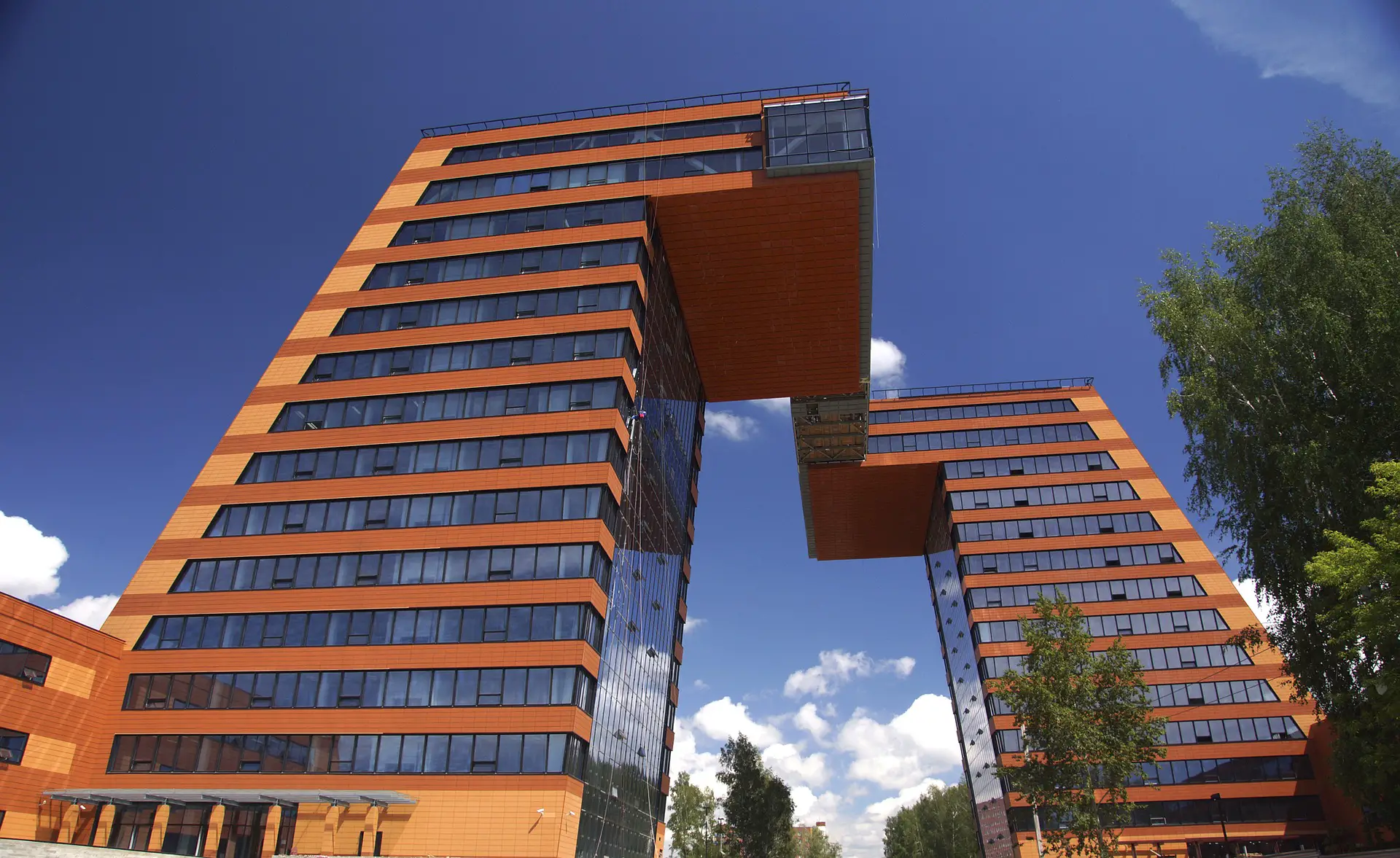While the Russian school system is quite well regarded generally around the world, Russian universities are not as consistent. There are world-class institutions and there are corrupt diploma factories where it is not difficult to simply buy a diploma. The Russian government is taking steps to raise the profile of its universities and things are getting better. In Moscow, there are a number of world-renowned universities like Moscow State University and National Research University – The Higher School of Economics. There are also great universities around Russia in major cities.
Russian Degree System
Relatively recently, Russia moved to the common Bologna Process of university education, which is the standard in Europe. During the Soviet Era, the degree system was different than in Europe and the United States and the main degree earned was a specialist degree, which was earned in five or six years. Today, Russian universities issue bachelor’s and master’s degrees in line with the Bologna Process. Therefore, the course of study in Russian universities is very similar to the European and American systems. It typically takes four years to earn a bachelor’s degree and two additional years to earn a master’s degree in Russia. The specialist degrees earned under the old system are roughly equivalent to a master’s degree today.
In addition to bachelor’s and master’s degrees, it is possible to study further for two post-graduate degrees called a “kandidat nauk” or candidate of sciences and “Doktor nauk” or doctor of science. A “kandidat nauk” usually requires two to four years of scientific study in a certain field and a significant contribution to the scientific community. This is roughly equivalent to the Western Ph.D., though this isn’t necessarily always true. A “doktor nauk” requires significantly more study and scientific contribution. It is not uncommon for these degree holders to be professors as it usually requires five or more years of study above and beyond a “kandidat nauk” degree. Some people consider the “doktor nauk” qualification to be similar to the German “Habilitation,” which is a post-doctoral research qualification rather than a degree.
Degree Types
Bachelor’s degrees in Russia are usually much broader than a major in the United States. For example, in the United States, a typical degree would be a bachelor’s in business administration with a major in finance. In Russia, you could get a bachelor’s degree in business administration, but you wouldn’t typically major in finance or accounting as in the United States.
Master’s degrees in Russia, on the other hand, are much more narrow than in the United States. At National Research University – The Higher School of Economics there are 60 different master’s degree programs under business and economics. For example, you could get a Russian master’s degree in corporate finance, which is broad or you could pursue a master’s degree in strategic management of logistics and supply chains in the digital economy.
Once you get to post-graduate degrees, it obviously gets even more specific just as in the United States and Western Europe.
Grading System
The grading system in Russian universities is just the same as in the Russian school system. Students are graded on a scale of 2 to 5.
- 5 – Excellent (like an A in the United States)
- 4 – Good (like a B in the United States)
- 3 – Satisfactory (like a C in the United States)
- 2 – Unsatisfactory (like an F in the United States)
The average required in order to earn honors or a “red” diploma in a Russian university differs at every university. Most universities require an average of 4.5, but some may require as high as 4.75 to graduate with honors.
Exams
There is an entire culture around exams in Russian universities and anyone who has studied in a Russian university loves to hate them. Exams in Russian universities are very different from the United States. In the United States, exams are almost always written, either essay or multiple-choice format. In Russia, on the other hand, exams are exclusively oral, usually in front of the whole class.
The exam process usually starts with the teacher giving out “bilety” or tickets to every student in the class. On each ticket, there is one topic and typically, each student takes two. The topics are broad but focused on a certain section of the material covered in class. The professor usually gives the ticket topics to the students on the class syllabus at the beginning of the semester or at another time during the semester. That means that you almost always know which topics will be on the exam. It isn’t uncommon that there are up to one hundred different possible topics on the tickets.
When the exam begins, each student randomly takes two tickets, so you have no idea which they will be in advance, but you have the opportunity to study them all in advance. Once each student has their tickets, the professor usually gives thirty minutes or so to prepare your answers to your questions on notepaper. Then, one by one, the students will go before the teacher and explain what they know about the topics from their tickets with the notes they have prepared.
In theory, this system is quite good, the students are able to study all of the topics that are relevant for the exam and the oral nature of the exam allows the professor to coach the students in the right direction to understand how well they know the subject. If you aren’t good at multiple-choice tests, you have the opportunity to prove you have learned the subject material. If you didn’t focus right on your notes before speaking with the professor, they will ask questions to get you on track making sure you hit on the right aspects of the answer.
Unfortunately, due to very low pay for professors in Russia, it is not uncommon at all for professors to leave the room during the preparation phase after students have their tickets. Of course, as soon as the professor leaves the room, the students pull out their notes from the semester and smartphones to prepare before going to speak with the professor. Most students know in advance which professors will do this from talking with students who took the class in the past.
This certainly isn’t common everywhere, but it is a big issue with Russian universities. It is also not uncommon for professors who are extremely underpaid in smaller Russian cities to take money from students to pass exams. As Russia continues to invest in its education system, this should get better, but in 2020, there are still significant differences in quality among Russian universities.
If you want to know some of the best universities in Russia, US News & World Report has a great comparison tool for all world universities so you can see how Russian universities stack up.
English Language Russian Degree Programs
As of 2020, there are not very many English language degree programs in Russia, but they do exist. National Research University – The Higher School of Economics has nine bachelor’s degree programs and 37 master’s degree programs that are taught exclusively in English. Other universities also have a number of programs, but National Research University – The Higher School of Economics leads the way with quality, world-recognized English degree programs in Russia. You can find a full list of English language programs available in Russia here.
Scholarships
Many university students in Russia study for free, but every year it is becoming more and more common for Russian students to pay for their university education. That being said, it is significantly cheaper than in the United States or the United Kingdom. Tuition for a foreign student rarely exceeds $4000 per year for a bachelor’s degree, and that includes a room in the dormitory.
It may come as a surprise, but there are many scholarships available to Russian and foreign students alike. The Russian government funds scholarships for many foreign students each year. It is also not uncommon to be granted a fully funded, 100% tuition waiver as a foreigner, especially if you apply for the Russian language programs. There is significant competition for English-language programs and, therefore, fewer scholarships available for degree programs in English. There are very few students each year who apply for Russian-language master’s programs, but there are a certain number of spots in every program, which are 100% funded by the Russian government for foreign students.
If you are interested in studying in Russia, we encourage you to look through the Russian government’s Study in Russia site. You will find a lot of information on the degree programs and scholarships available to foreign students.
Work During Study
One of the big advantages of studying in Russia is that starting in August 2020, you have the opportunity to work anywhere without a work permit during your studies. In the past, as a student in Russia, you could only work at the university. Under the new law, you will be able to work just about anywhere as long as you are a full-time student and are studying in an accredited Russian university.
In addition, there is a fast track method for obtaining a residence permit for certain professions if you work in Russia. Check out the details in our article about obtaining a residence permit working in Russia.
Being able to work while a student in Russia will make it much easier for people to study in Russia and transition into a professional job upon graduation. It is a great stepping stone if you are unsure about moving to Russia to settle long-term.
You can also check out the top expat job opportunities in Russia right now in our jobs section.
Russian Residence Permits & Citizenship for Graduates of Russian Universities
In addition to working during your studies, as of November 2019, it is also possible to apply for a residence permit in Russia upon graduation from an accredited Russian university with honors. For complete information on the process and documents required, check out our article on obtaining a residence permit by studying in Russia.
Conclusion
We hope that you have a much better understanding of the options available for studying at a Russian university and what to expect. Russia offers tremendous value for international students compared to Western universities in the US, UK, or Canada. Costs to study in a Russian university are very low and the reputation of the top Russian universities is comparable to many Western universities. We urge you to do your research on the quality of specific Russian universities before committing to study.
If you are interested in studying in Russia, feel free to reach out to us at Expatriant and we will try to point you in the right direction.
For a more detailed and technical look at the Russian education system, you can also check out the Education System Profile for Russia from World Education News + Reviews.

